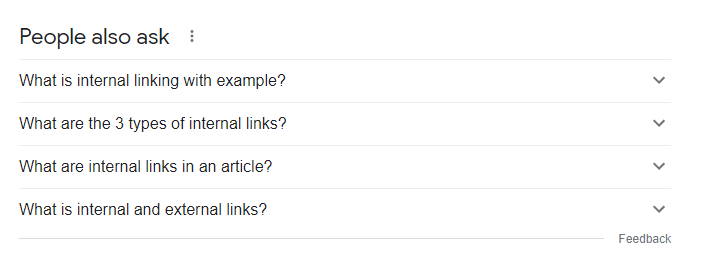Generally speaking, SEO improvements fall into two categories: on-site and off-site. On-site SEO is all of the stuff that you have control over. Optimizing your content, choosing the right keywords, and making sure your site is fast and mobile-friendly all fall into the on-site category. All of these factors are dependent on your website. Off-site SEO relates to the ways that other websites which you don’t control interact with your website. There are lots of things that go into off-site SEO, like social media shares and reviews, but the one off-site SEO factor that most everyone focuses on is backlinks.
Backlinks are links on other websites that point to your website. Backlinks are a huge SEO factor and have been since the earliest days of Google. Google’s search engine is only possible because of links; there is an army of Google robots out there right now, crawling all over the internet, finding and following links to pages that will then get indexed and placed into the search results. When Google crawls a link from one site to another, it sends a signal that a) the content of the two sites are related and b) the linking site views the linked site as a valuable information resource. A backlink, in essence, is one site vouching for another.
Here’s the thing though… backlinks aren’t the only type of links that affect SEO. Internal links, or links from one page on your website to another page on your website, get crawled by Google just like backlinks do. Internal links don’t necessarily pass the same trust and authority as backlinks (it’s one thing to have other sites endorsing yours, but not as effective when your site endorses itself), yet they still provide that important topical link between two pages. That is a powerful thing on its own, and unlike backlinks, you have complete control over your site’s internal links.
Relevance Versus Authority
When users search for a particular topic on Google, there can be huge variations in the different keywords they type into the search bar. Sometimes people are searching for very broad information on a topic. Other users may be more familiar, and type in a very specific question about the topic, expecting a very specific answer.
Those broad topics get a lot more searches in a given timeframe. However, the general nature of a broad topic keyword search means that Google doesn’t know exactly what information a user might be looking for. Google has to rely less on its understanding of the relevance of the content on a page to search query, and instead base the results on the trust and authority of the websites it displays. As we know, trust and authority is built on backlinks, which are essentially endorsements from other sites.
In this way, SEO is a balancing act between relevance and authority. If you write an article about a general topic because you know it receives lots of searches per month, you’re going to be competing with larger, more authoritative websites, and you’ll need some backlinks and authority of your own to rank near the top. Conversely, if you write a post about a very specific topic, you may be able to rank highly without many backlinks based purely on the relevance of your content, but there may be very little traffic actually searching for such a specific topic.
Using Internal Links to Improve Topical Relevance
If you have a new site without many backlinks, you’re going to have to squeeze every last ounce of relevance out of your content to make up for your lack of authority. Many people think this just means writing longer articles with more keywords, but this isn’t the case. That may have worked in the past, but Google’s advancement in natural language processing and goal towards providing the best answer means that adding “fluff” or cramming in keywords can actually hurt you. Straying too far from the specifics can actually hurt your relevance and make your content seem more broad.

The solution is proper internal linking. Internal links give users the option to explore related content, without forcing them to read it. Google will also follow these links when they crawl your page, increasing the exposure and relevance of the linked pages.
If your site doesn’t have the authority to rank for a general topic, you need to build up your relevance by creating specific posts that target the lower volume searches that are more specific. When you have several posts about specific subtopics with appropriate links between them, you are building a tight-knit web of topical relevance between these pages. As Google sees your site providing very specific answers to these specific subtopics (and providing a good user experience by linking users to other related posts), it will begin to see you as more of an authority on the overarching main topic. In this way, you can actually use relevance to build authority.
Where To Go From Here
Internal links are just a piece of the puzzle. They’re not a replacement for backlinks; you should absolutely still focus on acquiring backlinks as part of your balanced strategy to rank for more competitive terms. However, internal links are a useful, often-overlooked tool for building relevance and improving your user experience, both of which play an important part in SEO.
If you’re interested in learning more about how Watermelon can help improve your website’s rankings in Google, be sure to reach out to us. We’re ready and waiting to help!

